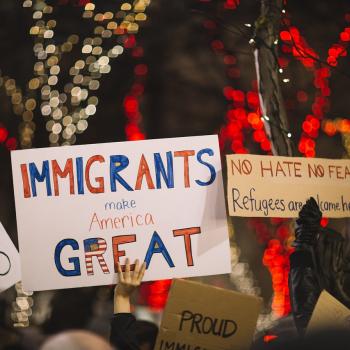For several months now, there’s been a lot of debate and online fervor surrounding Father James Martin and his efforts to “build a bridge” between the Catholic Church and the LGBT community (if you’re unfamiliar with Father Martin, I highly suggest you look him up).
While his actions have been praised by many, there are plenty of dissenters who have, loudly, proclaimed Fr. Martin’s work to be everything from spiritually dangerous to downright blasphemous. Most of these dissenters believe that Fr. Martin’s true intentions are to get the Church to change its teaching on sex and marriage in regards to homosexuality.
In short, I find this belief to be absurd, as I’ve found nothing in Fr. Martin’s ministry that would explicity suggest this to be his end goal.
But to go a bit further, I think backlash against Fr. Martin shows how many of us simply don’t understand what it takes to be a truly effective witness for Christ.
The thing we have to remember is that salvation is a lifelong journey. It’s not a one-time transaction that ends at baptism, or confirmation, or first communion, or the confessional. It’s an ongoing process of spiritual discovery, discernment, prayer, reflection, failure, and growth.
Additionally, from beginning to end, we all come to the Church by different means. No two paths are the same, and each and every one of face our own unique set of challenges, surprises, twists, and turns. Some may find their journey clear cut and easy to navigate while others may endure a great deal of spiritual struggle.
Therefore, in order for us to be truly effective witnesses for Christ and his Church, we must learn to meet people where they are, and not where we think they should be. We cannot approach every situation the same, and we certainly cannot bash people over the head repeatedly with the rules.
This, I believe, is something Father Martin understands better than most of us. Which I honestly find peculiar, since this is exactly the model for witnessing that Christ gave to us. In Luke, Jesus does not admonish Zacchaeus in front of the crowd. Instead he welcomes him *first*. In John 8, Jesus does not condemn the adulterous woman. Instead, he protects and comforts her *first*. Even in the final moments before his death, Christ begged mercy for the men who had just beaten and nailed him to a cross.
As Catholics, we are not called to be gatekeepers. It is not our job to stand at the doors of the Church with a list of qualifications one must meet before we let them in – especially when it comes to those who already feel ostracized by the Christian community.
Our job is to extend a hand, to build a bridge, and show those who are struggling in their spiritual journey that God loves them no matter what. That God created them in his image. That they are full of the same dignity as everyone else.
We need to go to these people, meet them where they are, and say to them, “it’s okay if you don’t get it. It’s okay if you don’t have it figured out. It’s okay if you don’t have it right. It’s okay if you can’t grasp or even accept everything the Church teaches right now. You’re welcome anyways. Come pray with us anyways.”
This is how we witness.
I’ll conclude with one of my favorite quotes from Pope Francis, where he reminds us of what the Church truly is.
“The thing the church needs most today is the ability to heal wounds and to warm the hearts of the faithful; it needs nearness, proximity. I see the church as a field hospital after battle. It is useless to ask a seriously injured person if he has high cholesterol and about the level of his blood sugars! You have to heal his wounds. Then we can talk about everything else. Heal the wounds, heal the wounds. … And you have to start from the ground up.”












